The current Sino Indian faceoff is the most serious since the 1962 conflict. Strung across hundreds of kilometres and encompassing many contentious areas it has been marked by scuffles between the two sides resulting in scores of casualties and heavy troop build ups. Three rounds of talks between the military commanders of the two sides accompanied by diplomatic exchanges have not so far resulted in any meaningful de escalation. Accordingly, this crisis is not going to be resolved any time soon and India has to be prepared to address it over the long haul. This is all the more so as the situation is rooted in China's hegemonic proclivities which make it intolerant of India's legitimate determination to maintain its strategic autonomy.
Government's initial steps are reassuring. The measured statements of 17th June by the EAM and the PM indicate that India will not buckle down to China but will stand firm and is prepared, if necessary, to impose costs on it for any adventurism. This was amplified in PM's stirring address to our troops in Ladakh on 3rd July. It is also evident that Government's China riposte will be multidimensional and extend to the military, diplomatic and commercial spheres. Militarily, one has already seen a beefing of our forces along the LAC and actions to fill up armament voids. Diplomatically, friendly countries have been kept in the loop about China's aggressive actions, India's linkages with likeminded countries are set to be further strengthened, and reticence about voicing concern about China's high handed actions in Hong Kong, Sinkiang, Tibet, the South China Sea etc is likely to undergo a change. On the economic front Sino Indian decoupling, which was long overdue, is at last gathering momentum with the denial of Indian markets to China in many sectors ranging from telecommunications to road building and from power to IT.
Such an existential crisis demands that India stands united. At the all party meeting convened by PM on 19 June most of the Opposition rallied around the position taken by the Government unequivocally. Of course a few Congress leaders, in a Pavlovian response, continue to bad mouth PM but they are fast slipping into oblivion and no importance need be attached to what they say.
It is, however, disturbing that, at a time when China's aggression on our borders is on full display, there is a surfeit of criticism by some Indian intellectuals who, rather than being supportive, choose to find fault with the Government's robust response. No one can, per se, be opposed to constructive criticism though it can justifiably be argued that such criticism is best deferred to a time when the situation has normalised. When, however, criticism seeks to undermine the national resolve to meet an existential threat it smacks at best of defeatism and at worst of anti nationalism.
As an instance of such a troubling critique, one may cite the contention of a leading academic that India should seek to resolve its differences with China only through diplomacy and must abandon any thought of the military option or the use of economic leverages. Another worthy similarly argues that since the power differential between India and China is heavily tilted against the former it should not escalate the conflict but should win peace by giving China face and doing things for it.
The aforesaid argument is intrinsically flawed as it is China not India which is escalating the situation. China has, indeed, been doing so ever since it became our neighbour and is in illegal occupation of several thousand kilometres of Indian territory through blatant aggression. The current sorry pass on our borders with China is, in fact, the result of our predisposition to avoid all options other than diplomacy to deal with the issue. It is this failure on our part that makes it imperative for India to stand up to China through the use of all possible options in order to compel it to desist from continuing to eat away at Indian territory. As for doing things for China there is no country that has done as much for it as India from allowing it to grab Tibet to championing its case for a permanent seat in the UN Security Council, and from accepting a one China policy to allowing the continuance of a huge adverse balance of trade with it. Above all, India has been assiduously mindful of China's core interests and has tried to maintain the relationship on an even keel notwithstanding its having blatantly acted against us on many issues such as stymieing our permanent membership of the UN Security Council, placing a hold on our membership of the nuclear suppliers group, arming Pakistan including with nuclear weapons, the raising of Kashmir in the UN Security Council, supporting Pakistan on terrorism related issues whether on Masood Azhar or in the Financial Action Task Force, and insidiously instigating our neighbours against us. It is regrettable that while concerns are expressed on saving China's face none are mooted about saving India's face!!
In much the same vein a former NSA advises that India remain "truly nonaligned" and not get co opted into "a wider anti China alliance" which China sees as a provocation. Curiously, he forgets that Nehru himself had to beg the West for weapons during the 1962 debacle which severely compromised our nonaligned policy. He also forgets that it was the India US nuclear deal concluded when he was in office which annoyed China and gave a body blow to our non aligned policies. He has also suggested that the recent Sino Indian standoff is the result of a failure of intelligence assessment. Charges of intelligence failure by him are a bit rich as he was our security Tsar at the time of one of India's most serious security disasters notably the November 2008 Mumbai attacks. Finally, given his long stint in government one would have hoped that he would have been more sensitive to the importance of raising issues like the adequacy of intelligence or otherwise at a more appropriate time well after the crisis at hand.
Yet another academic argues that India's "strategic dealing" with China has to begin with South Asia, that India should work hard to infuse new life into SAARC, and that this is hindered by Islamophobia in India and by the Government's "convoluted" economic vision. This line of argumentation has many shortcomings. Firstly, South Asia is a relatively small element in our relations with China and India's policies towards it cannot fundamentally alter the course of the Sino Indian relationship which has its own dynamics. Secondly, despite its constraints, India has gone out of its way to cultivate closer ties with its South Asian neighbours at great cost to itself through assistance-- financial, military, technical, and commercial-- and as a first responder in crisis situations of all kinds. It has, on occasion, also not hesitated in making territorial or strategic concessions which are rarely entertained. Regrettably, this positivity on the part of India has not been adequately appreciated and reciprocated. This is why SAARC has not taken off and there is nothing that India can do about it.
Thirdly, it is a fallacy to suggest that India is characterised by Islamophobia. On the contrary, Muslims in India are treated on par with those of other faiths and their condition is much better than that of their co religionists even in many Islamic countries. Finally, to suggest that the government's economic vision is "convoluted' on account of its call for self reliance is downright mischievous. All right minded governments seek to maximise local manufacturing and to suggest that the Indian government desist from so doing on the fallacious ground that it would be injurious to regional integration is ridiculous.
The Sino Indian standoff constitutes a critical turning point in India's history. India's standing in the international community will depend on how it handles this crisis. The stakes are huge. Successfully staring down the dragon will signal India's arrival on the international scene as a significant player. Failure to do so will condemn it to be a bit player at the mercy of all and sundry. In these circumstances, it behoves every Indian to stand resolutely with the Government in its multi dimensional moves to compel the dragon to desist from its hegemonic policies vis a vis India. These moves will inevitably cast a heavy burden on the nation and call for every Indian do his bit. The clash of wills between the two nations is likely to be long drawn out. While the common man, as in the past, will make whatever sacrifice is necessary it is to be hoped that our armchair intellectuals will do likewise and desist from petty nitpicking and carping criticism of the Government at this hour of crisis. National unity is the need of the hour and will infuse the decisive energy and punch to our China riposte and take India to success.
(The paper is the author’s individual scholastic articulation. The author certifies that the article/paper is original in content, unpublished and it has not been submitted for publication/web upload elsewhere, and that the facts and figures quoted are duly referenced, as needed, and are believed to be correct). (The paper does not necessarily represent the organisational stance... More >>
Image Source: https://www.pmindia.gov.in/wp-content/uploads/2020/07/H2020070389338.jpg


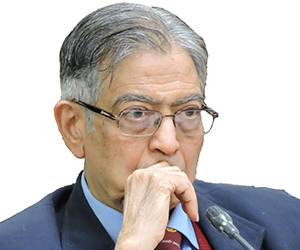

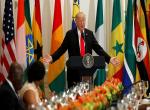

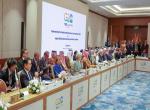
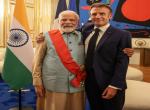

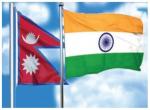
Post new comment